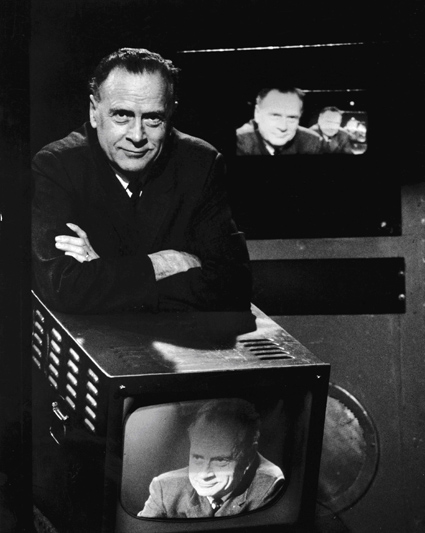In a 1966 issue of Ramparts magazine, writer Howard Gossage tried to explain the teachings of Marshall McLuhan, whose book from two years earlier, Understanding Media: The Extensions of Man, had announced him as a media star with a message. An excerpt:
“McLuhan’s theory is that this is the first generation of the electronic age. He says they are different because the medium that controls their environment is not print — one thing at a time, one thing after another — as it has been for 500 years. It is television, which is everything happening at once, instantaneously, and enveloping.
A child who gets his environmental training on television— and very few nowadays do not — learns the same way any member of a pre-literate society learns: from the direct experience of his eyes and ears, without Gutenberg for a middle man. Of course they do learn how to read too, but it is a secondary discipline, not primary as it is with their elders. When it comes to shaping sensory perceptions, I’m afraid that Master Gutenberg just isn’t in the same class with General Sarnoff or Doctor Stanton.
Despite the uproar over inferior or inept television fare, McLuhan does not think that the program content of television has anything to do with the real changes TV has produced; no more than whether a book is trashy or a classic has anything to do with the process of reading it. The basic message of television is television itself, the process, just as the basic message of a book is print. As McLuhan says, ‘The medium is the message.’
This new view of our environment is much more realistic in the light of what has happened since the advent of McLuhan’s ‘Electric Age.’ The Gutenberg Age, which preceded it, was one thing after another in orderly sequence from cause to effect. It reached its finest flower with the development of mechanical linkages: A acts on B which acts on C which acts on D on down to the end of the line and the finished product. The whole process was thus fragmented into a series of functions, and for each function there was a specialist. This methodology was not confined to making things; it pervaded our entire economic and social system. It still does, though we are in an age when cause and effect are becoming so nearly simultaneous as to make obsolete all our accustomed notions of chronological sequence and mechanical linkage. With the dawn of the Electric Age, time and speed themselves have become of negligible importance; just flip the switch. Instant speed.
However, our methodology and thought patterns are still, for the most part, based on the old fragmentation and specialism, which may account for some of our society’s confusion, or perhaps a great deal of it.”

